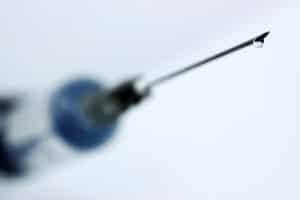Latest News – The Horse

Controlling Grassy Weeds in Horse Pastures
Broadleaf plants, such as dandelions and ragweed, aren’t the only weeds that can infiltrate pastures. Here’s how to control grassy weeds that can be prominent in summer pastures, including crabgrass, yellow foxtail, and nimblewill.

Vaccinate Horses to Protect Against EEE, West Nile
Studies have shown that vaccines can be effective in reducing the risk of horses contracting both EEE and WNV when administered appropriately. Here’s why you should vaccinate your horses.

Feeding the Orphan Foal
Orphan foals raised with a correct balance of nutrients and monitored for growth, food consumption, and weight gain can be every bit as tall, strong, and athletic as foals raised by their dams.

EHM in Arizona: Another Case Confirmed in Maricopa County
A 20-year-old Quarter Horse mare developed severe neurologic signs on March 25 and was euthanized. This case is not associated with the one reported in the same county on March 25.

Eastern Tent Caterpillar Eggs Hatching in Central Kentucky
Pregnant mares consuming large numbers of Eastern tent caterpillars caused staggering early- and late-term foal losses and weak foals during the mare reproductive loss syndrome (often referred to as MRLS) outbreak of 1999-2001.

UKVDL Map of the Month: EHV-1 Abortions in the 2019 Foal Crop
Disease caused by EHV-1 can be mild or more severe, including late-term abortion in pregnant mares.

The Jockey Club Calls for Reforms to Protect Racehorses
The Jockey Club released a white paper calling for comprehensive U.S. horse racing industry reform, including an overhaul of drug use and uniform out-of-competition drug testing protocols, among other points,

Minimum Care Standards for Horses
Minimum care standards describe just that: the very minimum care horses require. Here’s how they can help law enforcement personnel, horse owners, and prospective owners alike.

Finding a Horse Trainer Who’s Right for You (or Your Child)
Who you pick as a trainer can make all the difference for your (or your child’s) enjoyment and your horse’s health and welfare. A seasoned equine veterinarian offers her advice on critically evaluating trainers and their programs to find the right fit.

Why Does My Horse Play ‘Catch Me If You Can’?
Here’s why your horse might run away when it’s time to come in from turnout and how you can work to solve the problem.

Auctions Help Kentucky Producers Find Much-Needed Hay
In a year where supplies are tight, hay at two University of Kentucky Cooperative Extension Service auctions sold for nearly double the typical price.

Thoroughbred Safety Committee Announces 2019 Recommendations
Recommendations include avoiding using bisphosphonates in manners inconsistent with indications of use on the label and discontinuing bisphosphonates use in any horses in training regardless of age, having every jurisdiction employ a full-time equine medical director, and more.

Why Are My Horse’s Hooves Growing So Fast?
Why does a horse’s hooves grow faster than his stablemates’ that are on the same diet and exercise schedule? A veterinarian who’s also a farrier shares his thoughts.

Laminitis Care, Prevention Focus of Penn Vet Lecture
The lecture, which is free and open to the public, will be held Tuesday, April 2 at 6:30 p.m. in the New Bolton Center’s Alumni Hall.

EHV-1 Cases Confirmed in Arizona, Iowa
Officials reported cases in Maricopa and Yavapai counties, in Arizona, and in Polk County, Iowa.

Deciphering Your Feed Tag: Young and Growing Horses
The information on your youngster’s feed tag is designed to help you make important feeding decisions.











